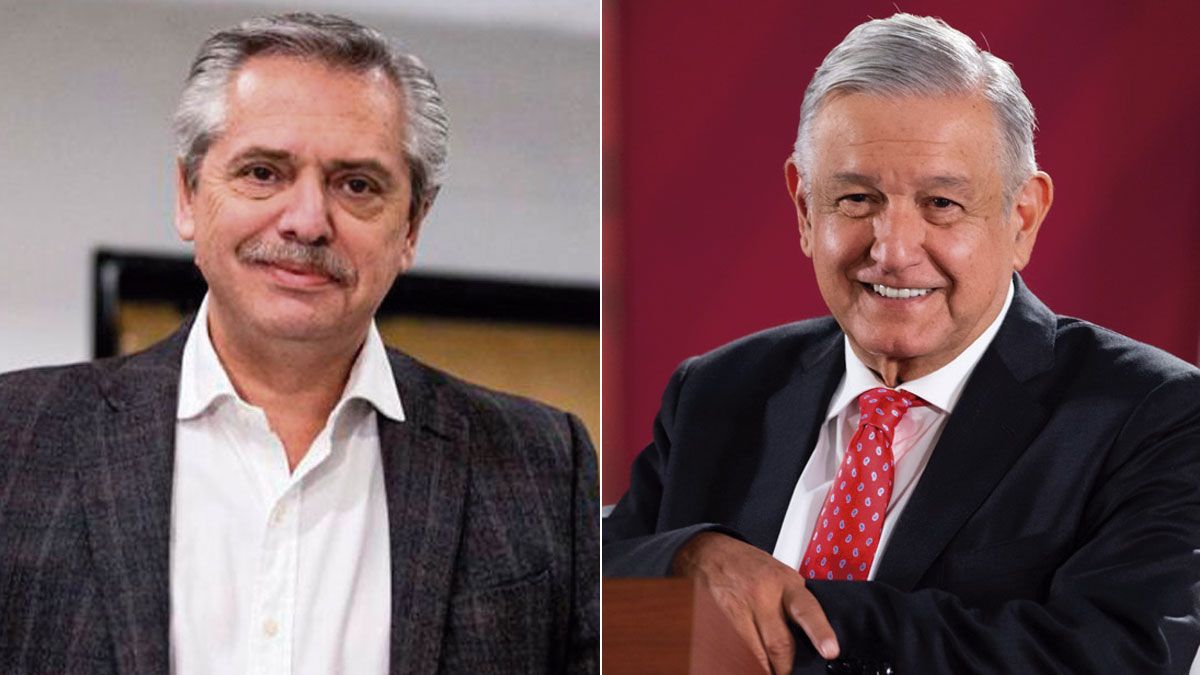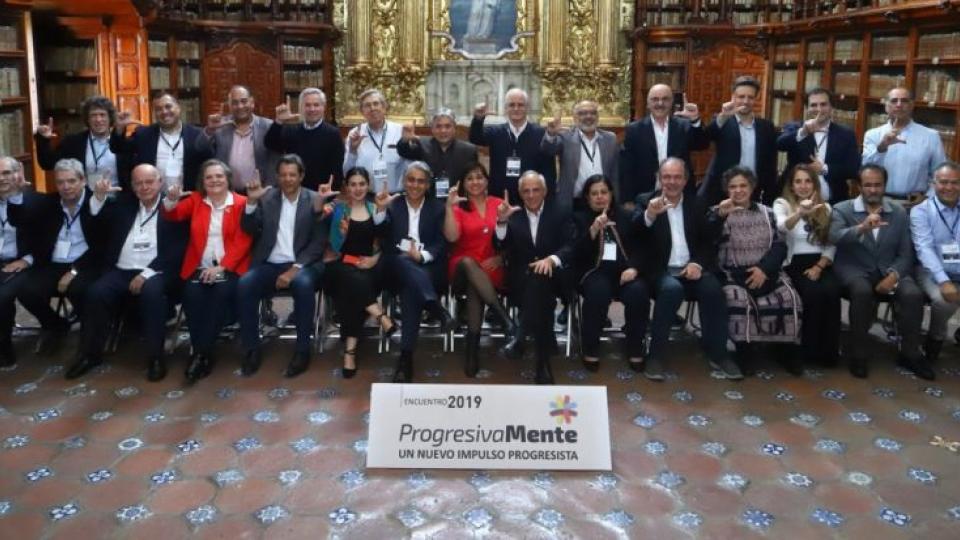RIO DE JANEIRO, BRAZIL – Argentina intends to promote a progressive approach in Latin America through Mexico. Convincing Andrés Manuel López Obrador to actively engage in this endeavor is the main reason for Alberto Fernández’s first trip as president-elect of the South American country.

Fernández met on Monday with the Mexican president, whom he sees as an ally to consolidate left-wing groups in the region, bewildered by years of setbacks and the authoritarian course taken by Venezuela, and which achieved a degree of alacrity after protests in several countries and the triumph of both leaders.
Fernández hopes that López Obrador will also join the Puebla Group (Grupo de Puebla), a newly created center in which some 30 politicians are involved and which the President-elect of Argentina has helped to build.
The fact that the Peronist leader’s first trip abroad is to Mexico, not to Brazil, provides a glimpse of what the new government’s foreign policy priorities will be. Fernández’s relationship with Jair Bolsonaro is fraught, to such an extent that the Brazilian president said that the Argentinians had “made a bad choice” and that he was not willing to congratulate the new president.
Argentina and Brazil are partners in Mercosur, and their economic dependence forces them to reach a consensus.
Fernández feels that everything will be easier with López Obrador. On the one hand, he will find an ideological ally to ease tension with Bolsonaro. In Buenos Aires, López Obrador is said to have a good relationship with Donald Trump and is confident that the Mexican president can work as a kind of mediator between Argentina and the International Monetary Fund (IMF) in mutual negotiations.
Should the process fail, Mexico could also be an ally, all the more so if the country’s economy continues to recede. López Obrador devoted much of his first year in office to dismissing the country’s neoliberal model as dead and, on more than one occasion, in the purest Kirchnerist style, blamed the markets for the collapse of his country’s economy.

Fernández’s gamble, however, also faces an obstacle: foreign policy is not a priority for López Obrador, who has not left the country for two years and, as president, has not wanted to attend the G20 summit or the UN General Assembly. The President-elect of Argentina will rely on the support of Mexican Foreign Minister Marcelo Ebrard, who has emerged as a kind of head of state abroad since he represents López Obrador in all events.
Fernández’s visit to Mexico is also intended to promote the Puebla Group, a leftist policy center founded last July and made up of some 30 people, including former Latin American presidents, foreign ministers, and politicians.
Its creator is former Chilean presidential candidate Marco Enríquez-Ominami, who is very close to Fernández, who has closely followed the group’s conception – named after the Mexican city because its first meeting was held there. However, López Obrador’s government did not play an important role. That is why Fernández will try to integrate it more actively this week.
Sources in the Mexican government say that although the group is not within the priorities of its foreign policy, the initiative is “interesting”. Former Brazilian presidents Luiz Inácio Lula da Silva and Dilma Rousseff, Ecuadorian Rafael Correa and Colombian Ernesto Samper are part of the initiative. The only non-Latin American participant is Spanish President José Luis Rodríguez Zapatero.
“We intend to reflect and politically organize ourselves to achieve regional progressive consensus. Consensuses that allow social prosperity, that allow us to progress towards societies with a market. The market is an instrument, not an end,” said Enríquez-Ominami, while not hiding his joy that two circumstances favorable to his initiative — Fernández’s triumph and the social protests in several Latin American countries — have coincided in time.
“Conservative governments have led to more poverty, social and economic inequality and more stressed societies in the face of the inaction of these governments in the face of injustices. That is why we feel it is time to unite to face of these challenges. Patience is converted into contempt in the face of injustice,” says the Chilean politician.
Venezuelan issues
The concept flowing among the Argentinian partners of the Puebla Group is to establish a Latin American alliance between Buenos Aires and Mexico City, which will serve both as a firewall for the excesses of Brasília and a “progressive” alternative to the Pacific alliance aligned with the United States – the Foreign Ministers of the Pacific Alliance will meet in Brasília on Friday.

“Part of the solution is regional cooperation, which is why the link with Mexico is important so that Mexico can look at the region and not just at its northern partners. We have to seek a closer relationship. There is a predisposition and there are possibilities for further integration,” said Jorge Taiana, former Chancellor of Cristina Kirchner and member of the group. The background noise is always the same: Venezuela.
The Argentinians of the Puebla Group consider that the Lima Group is following the United States in its policy of isolation of Venezuela, “a policy that Peronism does not consider successful”.
“There are many of us in the region who believe that this does not solve the problems and leaves the door open for intervention. All of us in the group share a sense of respect for sovereignty and believe that Venezuela’s issues should be resolved democratically by Venezuelans,” said Taiana.
“I seek to unite the entire region so that peace can be found this way. It is clear that a parallel government has not succeeded. Helping or assisting is not the same as intervening. And, therefore, we hope that the discussions between the opposition and the government will bear fruit. Nobody can evade a negotiated solution”, adds Enriquez-Ominami.
Thus, Mexico re-enters the Peronist map. Fernandez intends to follow López Obrador’s position in Venezuela, that is, to advocate against external interference in Venezuela – at least in rhetoric – but he does not rule out the option of becoming a decisive player in the search for a way out either.
In any event, having a representative who has been elected president reinforces Argentina’s role in the group. Next weekend, Buenos Aires will host its second meeting, which will be co-chaired by Alberto Fernández and Bolivian Vice President Álvaro García Linera
Everything seems to suggest that a document with general views on the need to contain the advance of neoliberalism will emerge there, but all eyes will be on Fernández’s debut as an organizer.
“There is a reality that needs a redefinition. If the system does not provide answers, we have social conflicts and it is our obligation to find a political solution. The elections in Argentina were an example of a way out because the crisis has found some way to change politics,” Taiana said.
Source: El País

